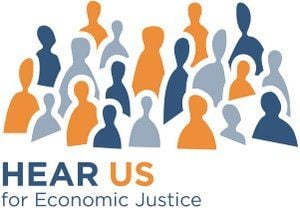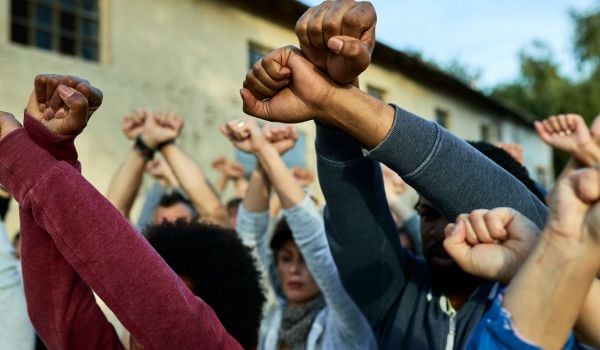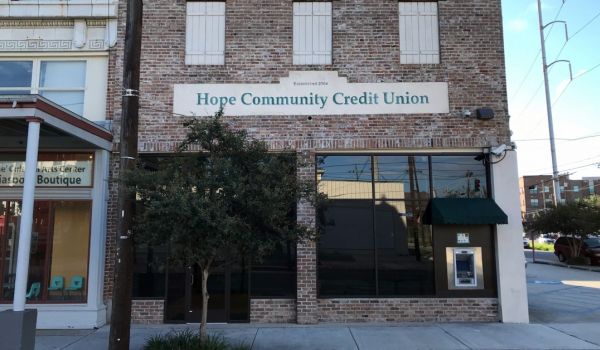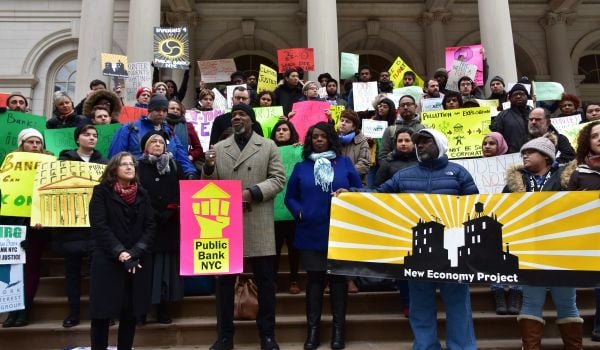EDITOR’S NOTE: “Hear Us” is a column series that features experts of color and their insights on issues related to the economy and racial justice. Follow us here and at #HearUs4Justice.
“We need to stop thinking of Black people as the problem and start seeing us as the solution.” – Nikole Hannah-Jones

Black self-determination, resilience, and imagination have created political power, economic innovation, and just education models amid the pandemic that hit our communities the hardest. Still, Black people are incessantly attacked and vilified as the source of their own economic oppression. Extreme racial disparities in the health and financial outcomes of COVID-19 have undeniably put lie to the “bootstraps” fallacy. The real problems — outdated economic policies and Black dehumanization — can only be solved by centering Black liberation. We now have the data and are building the power necessary to compel governments at every level to prioritize racial equity in a recovery economy.
Rising racial inequity threatens to damage the American economy beyond repair. One in three people in the United States have a household income below 200% of the federal poverty level. The majority of the staggering 100 million impoverished in America are people of color. By 2042, people of color will be the majority in this country and the primary drivers of our economic fate.
More than ever, we need an economic model that swiftly and completely resources the rising majority with opportunities that usher everyone into a season of prosperity. PolicyLink found that, among other structural changes, to implement liberating models requires:
- Rebuilding public infrastructure to increase job opportunities and safety;
- Creating policies that support small businesses in scaling;
- Formalizing partnerships between educational institutions and local communities to increase skill-sets for quality jobs.
The ascent of many Americans to the middle class was a policy decision the federal government made in the mid-20th century — a decision that excluded Black and immigrant households. Now, the racial wealth gap is rapidly expanding. Lower wages for Black workers are a product of systemic oppression in education and opportunity. Income inequality has devastated Black workers’ attempts to recover from the recession. It is everyone’s responsibility to shift our economic trajectory by recognizing that no racial group should sustain consistent injury in a society that promises liberty and justice for all.
PolicyLink’s “America’s Tomorrow: Equity is the Superior Growth Model” says that racial equity must be at the center of our long-term economic strategy to “bring us closer to the ideal of American prosperity.” The Federal Reserve has acknowledged that “if pandemic-era savings are disproportionately held by the affluent, they will sit on that cash rather than spend it…being less likely to propel the economy.” Our report found that focused strategies to address alarmingly high unemployment and low-wage work would position people of color to share, as opposed to hoard, their increased resources. However, low income and high unemployment for people of color “means fewer dollars to spend on goods and services, fewer business opportunities, and less economic activity.” Our findings underscore Robert Reich’s argument that: “[The] U.S. economy depends on the spending of most Americans who don’t have much to spend. That spells trouble ahead.”
PolicyLink’s Sarah Treuhaft gives us reason to be hopeful we can shift our trajectory towards prosperity when we understand that “the economic return on racial equity is enormous.” Researchers found that heeding the moral and economic imperative for equity would create the systemic change all Americans need as we continue to endure the pandemic’s financial toll:
- The American economy would gain $2.1 trillion in gross domestic product (GDP) every year — a 14% increase — by closing its racial gaps in income.
- Nationwide, 66% of the racial income gap is attributed to wage differences, while 34% is attributed to employment differences.
- The country’s 150 largest metropolitan regions are home to the most diverse populations in the nation and would experience even greater gains: a 24% increase in earnings and GDP, compared with the nationwide increase of 14%.
- Every region of the country would be financially stronger with racial inclusion. Potential metro GDP gains range from $287 million per year in Springfield, Missouri (the lowest potential gain) to $510 billion per year in Los Angeles (the highest).
We’re prepared to go beyond simply reporting these findings to collaborate with the government in order to realize these systemic and attainable goals.
PolicyLink supports the government’s bold racial equity agenda with well-researched strategies to center Black economic advancement in leading-edge policy design and implementation. We recently launched the first of a series of convenings with equity leaders and administration officials, including Catherine Lhamon, Deputy Assistant to The President & Deputy Director of the Domestic Policy Council for Racial Justice & Equity. This is the first in a series of convenings to explore issues of racial equity in the federal government.
Our campaign is designed to amplify America’s boldest racial equity goals to date in the Biden-Harris administration’s executive order to support underserved communities through the federal government. Lhamon shared some specific equity goals set with the president’s $1.9 trillion American Rescue Plan. The administration aims to “dramatically reduce racial wealth gaps, cutting poverty in the Black community by 38%, in the Latinx community by 43%, and in AAPI communities by 23%.”
We know it is essential for our government to reach its racial equity targets for all people of color. And, as Angela Glover Blackwell demonstrates in the Curb Cut Effect, “Intentional investments in Black Americans have benefits that cascade out, improving the lives of all struggling people as well as regional economies and the nation as a whole.”
Irrefutable data confirms that Black people have always been poised to be the salvation of our nation. The challenge is to do the unprecedented and finally love and protect the communities that our country, since its founding, has failed to see as human. Love is our soul’s ability to overcome individualism and respect our linked fate and human connection. For all who live in this country, to unlock the potential of the most deprived is to unlock the potential for a thriving America that empowers us all.

Michael McAfee is the President and CEO of PolicyLink.
















